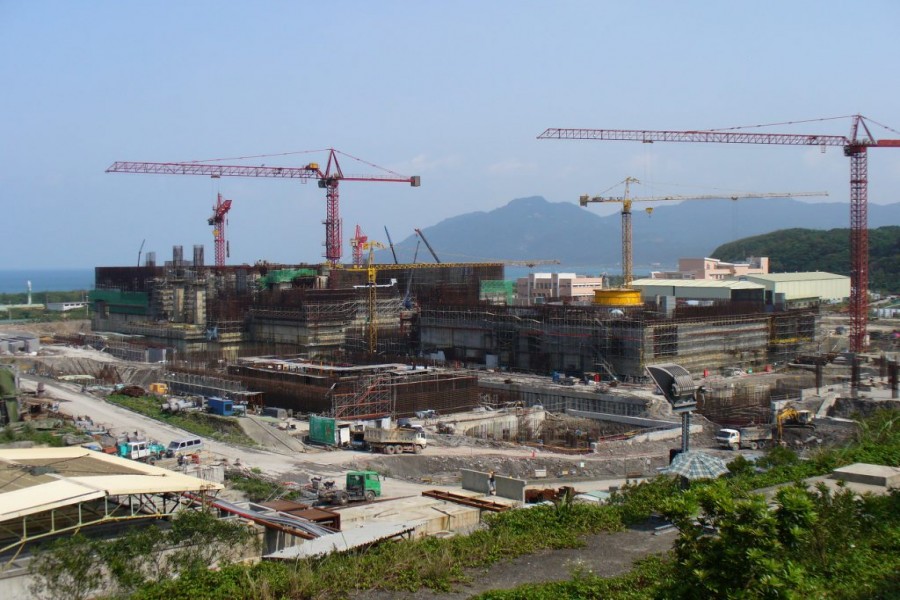The government has launched an ambitious programme to set up 100 new economic zones (EZs) to generate 10 million new jobs, earn $40 billion in additional exports and attract $20 billion in foreign direct investment (FDI) -- all by 2030.
Besides creation of new jobs, the EZs are expected to boost the country's export earnings by $40 billion a year, encourage industrialisation, increase production and diversify export basket. So far, the government has approved 59 sites across the country for EZ development. Out of such earmarked areas, development of 15 EZs has recently begun with 'renewed zeal'.
The Bangladesh Economic Zones Authority (BEZA) has already awarded prequalification licences for the establishment of 15 private economic zones. Licences approving start of operations were recently given to Meghna Industrial Economic Zone, Abdul Monem Economic Zone, Aman Economic Zone and Bay Economic Zone.
Such a development suggests that the work for setting up of EZs for local and foreign investors is finally gaining momentum, following the approval of 24 new zones and the sanction of nearly Tk 4.50 billion to acquire land for a special zone. Establishment of EZs aims at attracting foreign direct investment (FDI) to the country.
Such overseas investment is, however, on the decline. It dropped 32 per cent last year due to uncertain business climate in the country. If political uncertainty persists in a country, attracting foreign investment is very difficult.
What the foreign investors take into account is what the World Economic Forum (WEF), the International Finance Corporation's (IFC) Ease of Doing Business and the Logistics Performance Index say about Bangladesh. The position of the country has not otherwise improved to any considerable extent, in terms of rankings, particularly in the sectors critical for the economy.
In the latest World Bank's (WB's) Ease of Doing Business ranking, Bangladesh's position dropped last year due to its stalled regulatory reforms. The overall private investment rate has also declined as a ratio to the country's gross domestic product (GDP), according to reports.
Bangladesh's ranking is very low when it comes to getting electricity connection, property registration, contract enforcement and dispute settlement. Alternative systems to resolve dispute and recover defaulted bank credits are not functioning properly.
There has, of late, been some progress in the preparatory work for the special EZs by way of signing contracts. The BEZA, in its recent governing body meeting, took a decision that a policy would be formulated to provide one-stop service to those who would invest in EZs. But it is not clearly known whether the BEZA enjoys enough power to ensure this
Many countries around the world have benefited tremendously from EZs. For example, Vietnam has enormously boosted its industrial output through 200 EZs developed during the last 16 years. If Vietnam can do such a huge job, why can't Bangladesh? Myanmar is also right on track now to woo the global investors. Yet unfortunately, Bangladesh is lagging far behind.
The government has recently selected four exclusive economic zones for three countries. As reports in the media indicate, Japanese investors are expected to get land in Narsingdi and Narayanganj. Chinese investors will also be given another zone in Chittagong. Two special economic zones -- one in Bheramara and another in Mongla -- have been marked for Indian investors,
In order to attract long-term investments, the government did offer some tax benefits. Developers of the EZs will enjoy such facilities. Investment of foreign entrepreneurs will not be restricted through ceiling. They will enjoy full repatriation of capital and dividend. The foreign investors will also be exempted from export tax; they can enjoy 50 per cent rebate in land registration fees, and 20 per cent value added tax (VAT) exemption in cases like utility service bills.
Added to this, foreign investors in EZs will be allowed to bring 5.0 per cent of a factory's workforce from their own countries. Foreign workers having technical expertise in respective fields will be allowed to enjoy 50 per cent income tax exemption for five years.
In order to attract sizeable private and foreign investors, more things do need to be accomplished. There should be reduction of taxes and duty structure on services, easing visa and work permit with extension of visa tenure for the overseas investors. A satellite township needs be built in the EZs to give the workers a better life through better access to education and health.
Under the circumstances, maximum efforts should be given to speed up the implementation process of the EZs. Otherwise, it will be a daunting task for the government to keep the economy on track for sustaining the growth momentum that is direly needed to achieve the coveted status of a middle income country.


